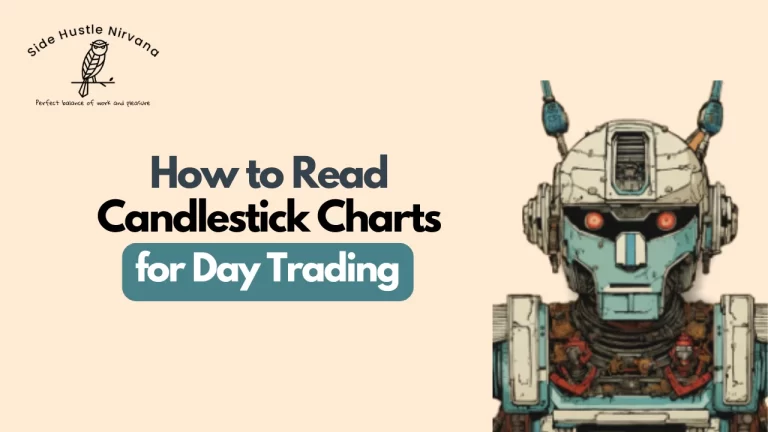Top 5 Trading Platforms for Beginner Day Traders
Day trading can be a thrilling and potentially profitable venture for those who are willing to commit time and effort to research and practice. However, for beginners, choosing the right trading platform can make all the difference in their trading experience. In this article, we will explore the essential features and costs associated with trading platforms, followed by a detailed review of some of the best platforms available for beginner day traders.
Understanding Day Trading
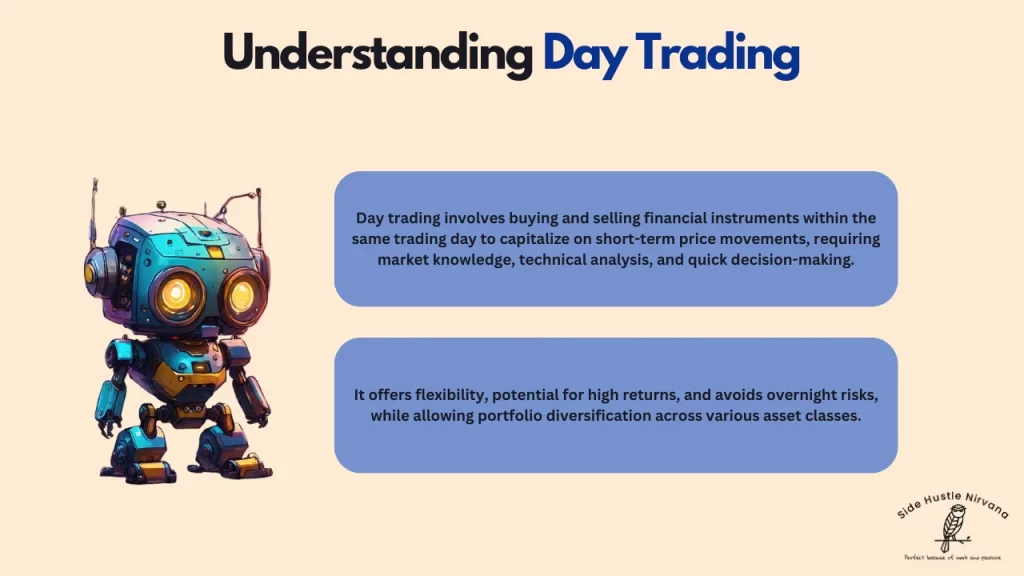
Day trading refers to the buying and selling of financial instruments within the same trading day. This strategy allows traders to capitalize on short-term price movements, making multiple trades throughout the day without holding positions overnight.
What is Day Trading?
Essentially, day trading is about making quick decisions and executing trades based on market conditions that can change rapidly. Traders use various tools and technical analysis to identify patterns and forecast price movements, ultimately aiming to profit from the volatility in the markets.
It’s important to understand that day trading is not for everyone. It requires a solid knowledge of markets, a keen sense of timing, and a strong psychological resilience to manage the rapid ups and downs of trading. Successful day traders often spend hours analyzing charts, studying market trends, and keeping abreast of economic news, which can significantly influence market behavior. They also develop strategies tailored to their trading style, whether it be scalping, momentum trading, or range trading, each with its own set of rules and risk management techniques.
Why Choose Day Trading?
Many individuals are drawn to day trading because of the potential for significant financial returns in a short time frame. The thrill of watching the market and making quick decisions can also be appealing. Additionally, day trading offers flexibility, allowing traders to work from anywhere, provided they have a stable internet connection.
Another advantage is that day traders do not face the overnight risks that come with holding positions longer, as their trades close before the day ends. This allows traders to avoid the uncertainties of market-moving news that can occur once the trading day is over. Furthermore, day trading can be a way to diversify one’s investment portfolio, as traders often engage with various asset classes, including stocks, options, futures, and forex. This diversification can help mitigate risk and enhance potential returns, making it an attractive option for those looking to expand their financial horizons.
Essential Features of Trading Platforms
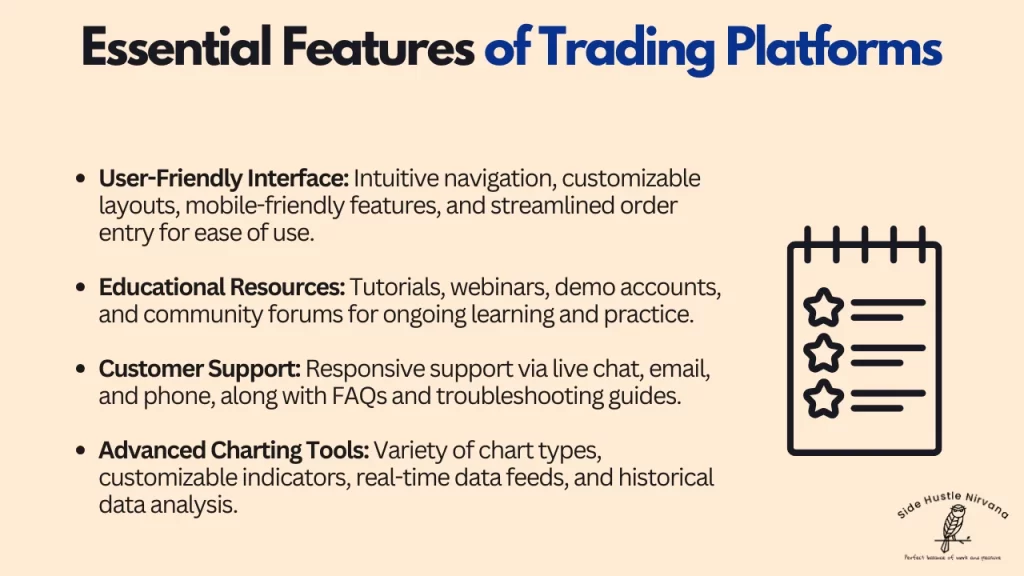
As you embark on your journey as a beginner day trader, choosing a platform with essential features tailored to your needs is crucial. Here are some key features to consider when evaluating trading platforms.
User-Friendly Interface
A user-friendly interface is essential for beginners. A platform that is intuitive and easy to navigate allows novice traders to execute transactions quickly and efficiently without overwhelming them. Look for platforms that offer customizable layouts, streamlined order entry, and easily accessible charts.
Additionally, a mobile-friendly version can be beneficial, as many traders appreciate the flexibility of being able to monitor and execute trades on the go. Many platforms also include touch-friendly features that enhance usability on smartphones and tablets, making it easier to manage your portfolio from anywhere.
Educational Resources
Since day trading can be complex and requires ongoing education, platforms that provide robust educational resources are invaluable. Look for platforms that offer tutorials, webinars, and articles to help you understand trading strategies and market analysis.
Some platforms provide demo accounts that allow you to practice trading without risking your capital, which can be an excellent way to build confidence before committing real money. Furthermore, many platforms host community forums where traders can share insights, ask questions, and learn from each other’s experiences, creating a supportive environment for growth.
Customer Support
Responsive customer support is another essential feature for traders. As a beginner, you may have questions or encounter issues that require immediate assistance. A platform with reliable customer service can make the difference in ensuring that you receive timely help whenever needed.
Consider platforms that offer multiple support channels, such as live chat, email, and phone support, to ensure you have access to assistance when you need it the most. Additionally, some platforms provide extensive FAQs and troubleshooting guides that can help you resolve common issues independently, empowering you to navigate the platform with greater confidence.
Advanced Charting Tools
Another critical feature to look for in a trading platform is advanced charting tools. These tools allow you to analyze price movements, identify trends, and make informed trading decisions. Look for platforms that offer a variety of chart types, such as candlestick, line, and bar charts, as well as customizable indicators and overlays that can enhance your technical analysis.
Some platforms even provide real-time data feeds and historical data analysis, which can be invaluable for spotting patterns and making predictions about future market behavior. The ability to save and share your chart setups can also facilitate collaboration with other traders and enhance your learning experience.
Evaluating Trading Costs
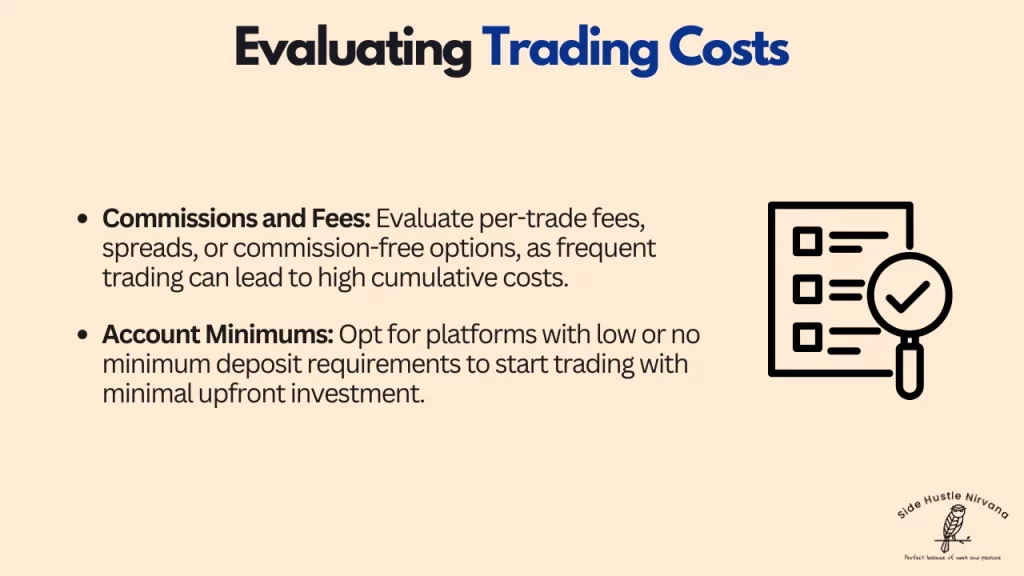
Understanding the costs associated with trading is crucial for beginner day traders. Fees can eat into profits, making it essential to evaluate the cost structure of potential platforms.
Commissions and Fees
Most trading platforms charge commissions or fees for executing trades. These costs can vary widely from platform to platform. Some may offer commission-free trading, while others may have a per-trade fee or charge a spread on trades.
Be sure to factor in these costs into your trading strategy, as frequent trading can result in high cumulative fees, significantly affecting your overall profitability.
Account Minimums
Another important consideration is the account minimums required by trading platforms. Some platforms may require a significant initial deposit to open an account, while others may have very low or no minimum requirements.
For beginners, it may be wise to choose a platform with low account minimums, allowing you to start trading without a hefty upfront investment. This flexibility enables new traders to gain experience while managing their risk effectively.
Detailed Review of Top 5 Trading Platforms
Now that we’ve outlined key features and costs, let’s take a closer look at five of the top trading platforms suited for beginner day traders. Each platform has its own unique features and benefits that cater to varied trading styles.
Platform 1: Features and Benefits
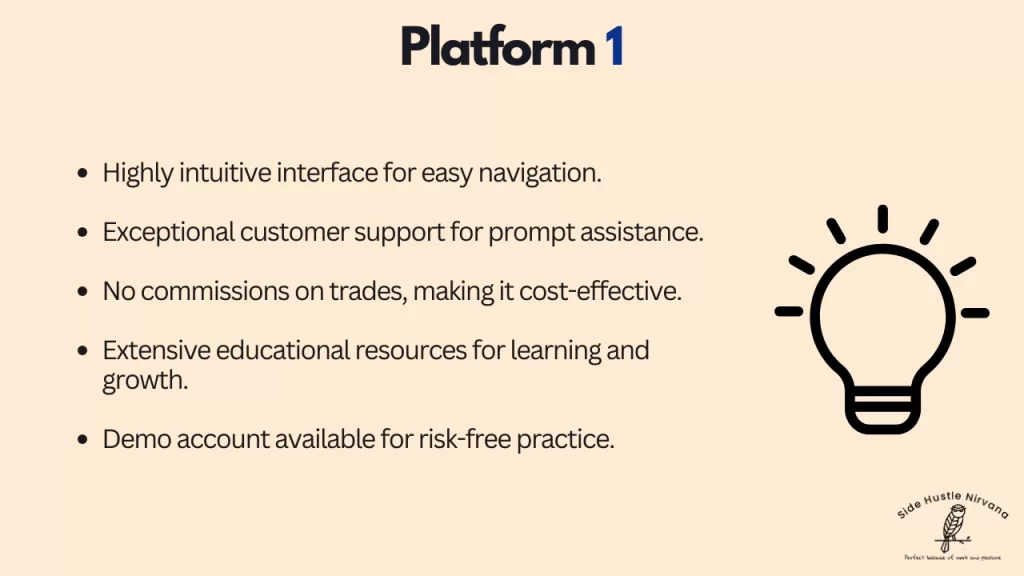
This platform offers a highly intuitive interface and exceptional customer support. With no commissions on trades and a plethora of educational resources, it has become a popular choice among beginner traders.
Moreover, it features a demo account for practice, allowing users to familiarize themselves with the platform without risk.
Platform 2: Features and Benefits
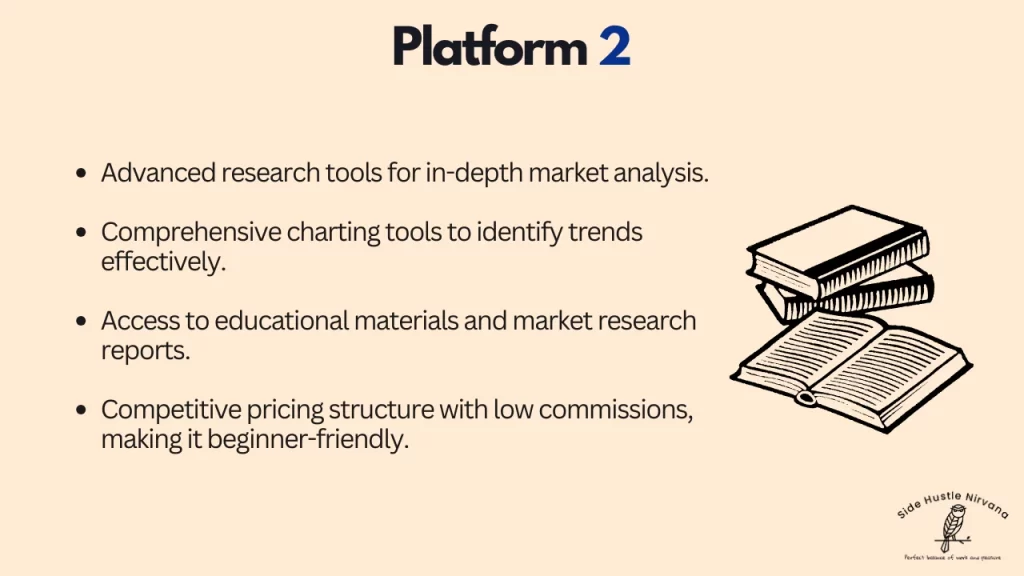
This platform is known for its advanced research and charting tools that help traders identify market trends effectively. With a focus on analysis, it provides access to a range of educational materials and market research reports.
Its competitive pricing structure, which includes low commissions, makes it a cost-effective choice for beginners.
Platform 3: Features and Benefits
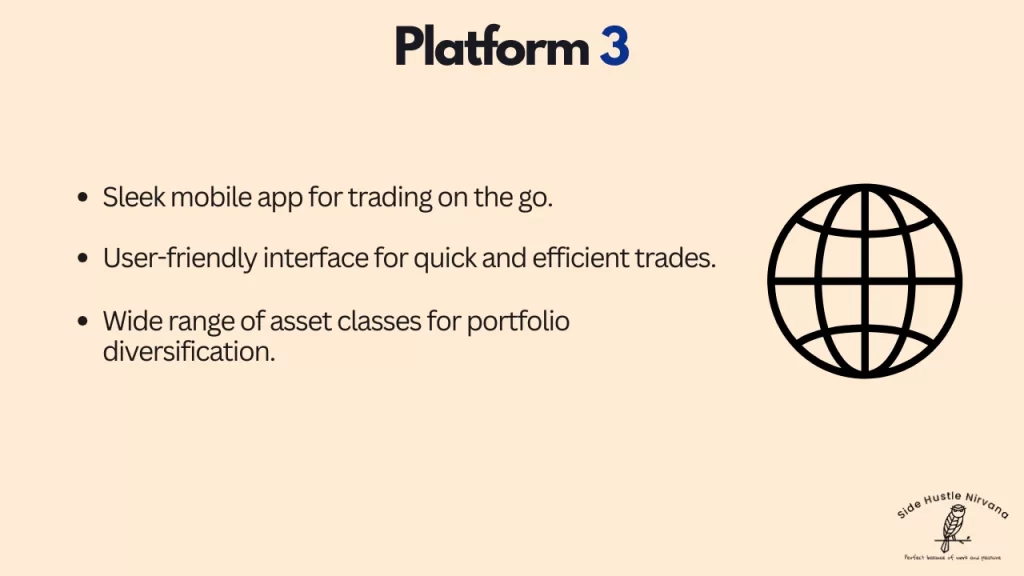
Offering a sleek mobile app, this platform allows traders to engage in day trading while on the move. Its user-friendly interface makes it easy for newcomers to make trades quickly and efficiently.
Additionally, it offers a wide range of asset classes, enabling traders to diversify their portfolios with ease.
Platform 4: Features and Benefits
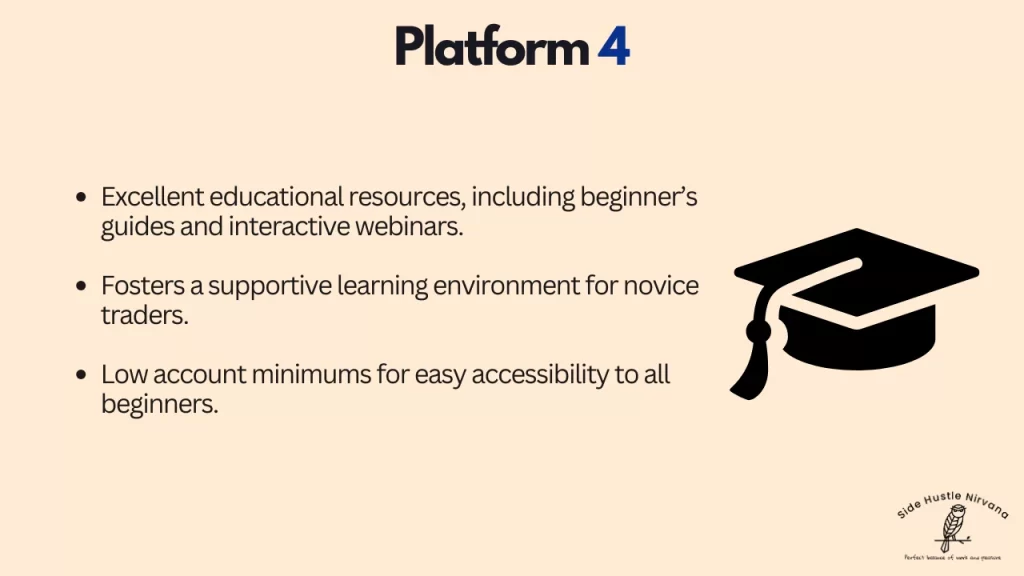
This platform stands out for its excellent educational resources, including beginner’s guides and interactive webinars. It fosters a learning environment for novice traders eager to improve their skills.
Furthermore, it features low account minimums, which makes it accessible for all beginners wishing to venture into day trading.
Platform 5: Features and Benefits
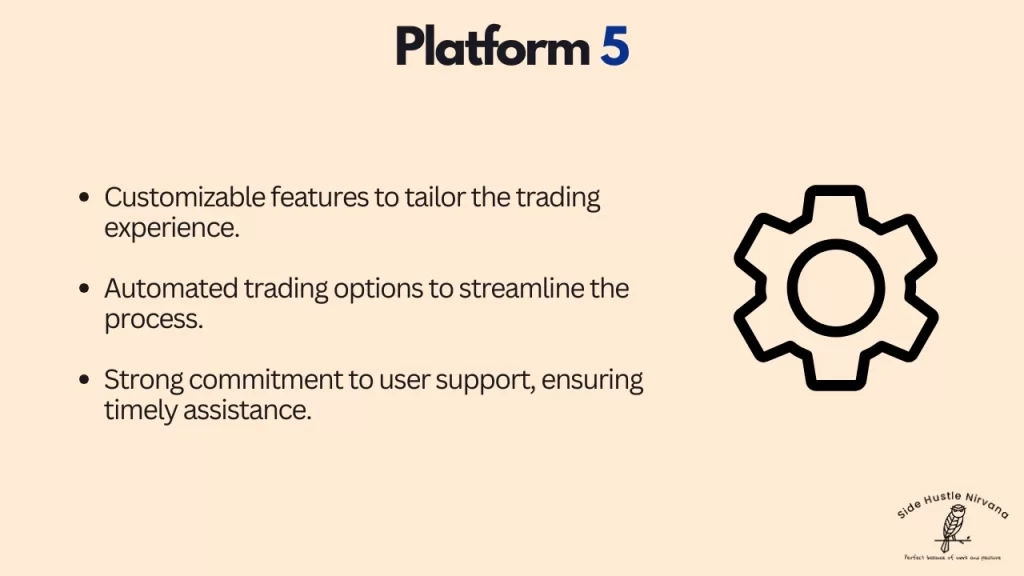
The final platform to consider is targeted towards those who appreciate technological enhancements. It boasts customizable features and automated trading options that can help streamline the trading process.
Its commitment to user support ensures that beginners receive assistance whenever they need it, making it a strong candidate for new day traders.
In conclusion, selecting the right trading platform is a crucial step for beginner day traders. By understanding essential features and costs, and reviewing suitable platforms, you can equip yourself for a successful trading experience. Remember to approach day trading with caution and continued education to enhance your skills over time.




